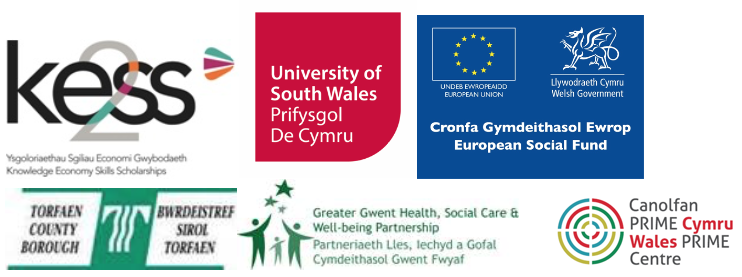 Title
Title
An exploration of compassionate care from the perspective of older people, carers and service providers.
Principal / Lead investigator
- Molly Curtis (University of South Wales)
 Co-investigators / research team
Co-investigators / research team
-
Dr Juping Yu (University of South Wales)
-
Prof Carolyn Wallace (PRIME, University of South Wales)
Type of study
Mixed-methods research
Summary
The study was originally conducted for a Masters by Research (MRes) qualification, and has now been upgraded to a PhD. This project aims to explore compassionate care from the perspectives of older people (receiving care for daily living), carers and service providers. Based on the results, the study also aims to develop and test a tool to measure compassionate care.
The MRes study involved using a Group Concept Mapping (GCM) method with older people, carers and service providers to explore the concept of compassionate care. GCM involves 3 participant-led tasks: “brainstorming”, “sorting” and “rating”.
First, older people were recruited to take part in an in-depth interview. The interviews focused on their experience of care, and their opinions of compassionate care. The findings were used to form the basis of the “brainstorming” task. Focus prompts were developed based on participants’ responses (“If being compassionate is showing you care, I know someone is being compassionate when they... OR I know I am being compassionate when I...). Statements which completed the focus prompts were also extracted from interview transcripts.
Older people and carers were then recruited to take part in up to 3 workshops. During the “brainstorming” workshop, participants were asked to generate statements that completed the focus prompts. For the “sorting” workshop, participants were asked to sort a collection of 89 statements into categories that made sense to them (and gave each category a label). For the “rating workshop, participants rated each of the 89 statements against 2 scales (“importance” and “experience”). Service providers took part in the same tasks, but completed these online in their own time.
This project has so far identified key elements of compassionate care from the perspectives of participants. We have compared similarities and differences in perspectives of compassionate care, from the point of view of older people, carers and service providers. We have also produced a conceptual framework of compassionate care that includes all participants’ perspectives. The resulting framework suggests that compassionate care is best represented by 8 clusters.
To form the PhD study, the results are being used further to develop a tool to measure compassionate care. Statements within each of the 8 clusters have been selected to form the initial item pool for the tool. The initial version of the tool is being pilot tested in a simulated environment with health and social care staff and students at the University of South Wales. Focus group data is being collected during the pilot testing sessions. Feedback from these focus group discussions will be used to make amendments to the tool, prior to it being tested in practice (i.e. in health and social care services for older people).
Lay involvement
Older people receiving residential, nursing or domiciliary care took part in in-depth interviews during the initial stage of the study. Older people and carers took part in the GCM workshops, and service providers (including NHS staff) took part online. The resulting framework represents the voice of the participants who were involved in the GCM study.
An overview of the study was presented to the PRIME Centre Wales SUPER Group prior to data collection. Their feedback and suggestions were taken into account when designing the study materials, recruitment strategies and data collection procedures.
How could this research potentially benefit patients?
By improving the quality of care and service provision in care settings, through a better understanding of the concept of compassionate care and the development of a framework of compassionate care.
By producing a tool to measure compassionate care in UK health and social care settings for older people. The tool is being developed based on the perspectives of older people, carers and service providers.
Does the study involve commercial partnership activity?
Yes, Torfaen County Borough Council (Company Supervisor: David Williams - Greater Gwent Health, Social Care and Well-being Partnership).
Who is the study sponsor?
University of South Wales
UKCRN portfolio number (if relevant)
To follow
Funder
KESS 2 – European Social Fund (ESF), in partnership with Torfaen County Borough Council
Total grant value
£35,418
Start date
01/10/2018
End date
30/09/2019
Further information
Project profile on ResearchGate: https://www.researchgate.net/project/An-exploration-of-compassionate-care-from-the-perspectives-of-older-people-carers-and-service-providers
Outputs generated (Reports / Publications / Impact)
Milly Curtis LinkedIn: www.linkedin.com/in/molly-curtis
Researchgate: https://www.researchgate.net/profile/Molly_Curtis2

